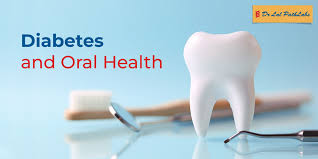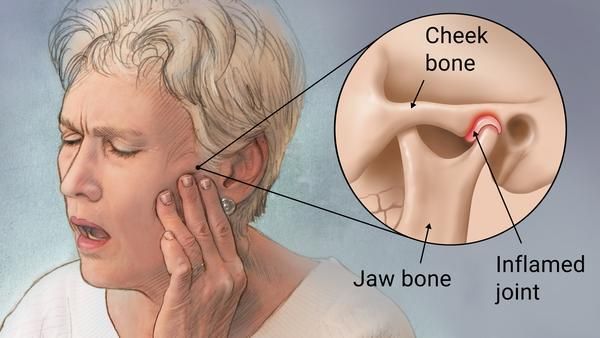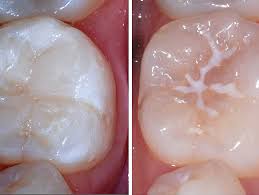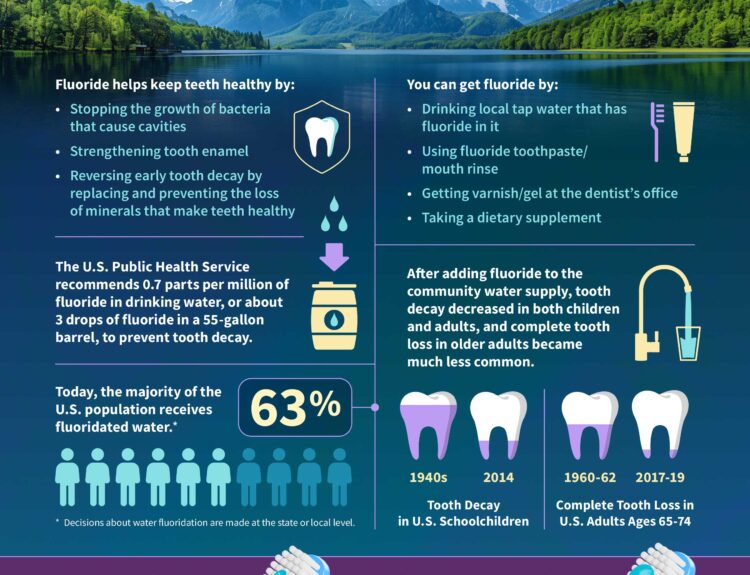Diabetes is a condition characterized by elevated blood sugar levels, either due to the body inability to produce enough insulin or its inability to use insulin effectively. Beyond its well-known systemic effects, diabetes has a profound impact on oral and dental health, influencing various teeth and gums conditions. Understanding this connection is vital for both individuals with diabetes and healthcare professionals to ensure comprehensive management of the disease.
- Periodontal Disease:
Periodontal (gum) disease is one of the most common oral health problems in individuals with diabetes. High blood sugar levels create an environment conducive to bacterial growth, leading to plaque accumulation as well as gum inflammation. It can progress to periodontitis, characterized by gum recession and bone loss. It can consequently cause tooth loss. Moreover, periodontal disease can further exacerbate blood sugar control, creating a bidirectional relationship. - Dry Mouth:
Diabetes can reduce saliva production, consequently leading to dry mouth. Saliva is essential for maintaining oral health as it helps wash away food particles, neutralize acids, and protect against infection. Dry mouth increases the risk of tooth decay, oral infections, and discomfort. - Oral Infections:
Individuals with diabetes are more susceptible to fungal infections such as oral candidiasis (thrush) due to a weakened immune system and elevated glucose levels in saliva. These infections can cause discomfort, a burning sensation, and difficulty swallowing. - Delayed Wound Healing:
Diabetes slows the healing process, making it more challenging to recover from oral surgeries, such as tooth extractions or periodontal treatments. This also increases the risk of post-surgical complications, including secondary infections. - Burning Mouth Syndrome:
Some people with diabetes experience a burning sensation in their mouths. It may be accompanied by a metallic taste or dryness. This condition can significantly affect the quality of life of a diabetic person. - Dental Decay:
The combination of dry mouth and high blood sugar levels creates a favorable environment for cavity-causing bacteria. This makes individuals with diabetes more prone to tooth decay.
Preventive Measures for Maintaining Oral Health
The connection between diabetes and oral health necessitates the importance of a holistic approach to managing the condition. Maintaining good oral health is essential for individuals with diabetes to prevent complications and improve well-being as a result. Preventive measures include:
- Blood Sugar Control:
Managing blood sugar levels is fundamental to reducing the risk of diabetes-related oral health problems. Consistent monitoring and adherence to prescribed medications and diet plans are essential. - Regular Dental Visits:
Routine dental check-ups and cleanings allow for early detection and treatment of oral health issues. Dentists should be informed about the patient’s diabetes status to provide tailored care. - Oral Hygiene Practices:
Brushing twice a day with fluoride toothpaste and flossing daily can help prevent plaque buildup and reduce the risk of periodontal disease and cavities. Using an hot saline mouthwash may also be beneficial. - Healthy Diet:
A balanced diet low in sugar not only supports blood sugar control but also reduces the risk of dental decay. Limiting acidic and sugary foods can protect teeth and gums. - Smoking Cessation:
Smoking exacerbates the effects of diabetes on oral health, increasing the risk of gum disease and oral cancer. Quitting smoking is crucial for overall health improvement.








